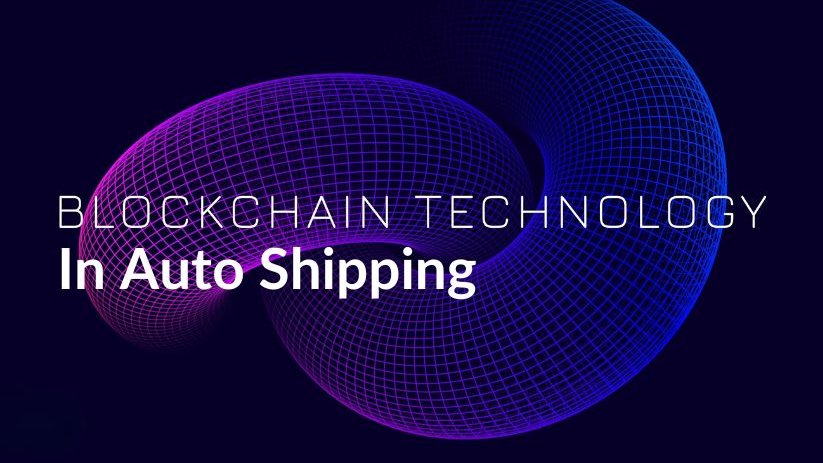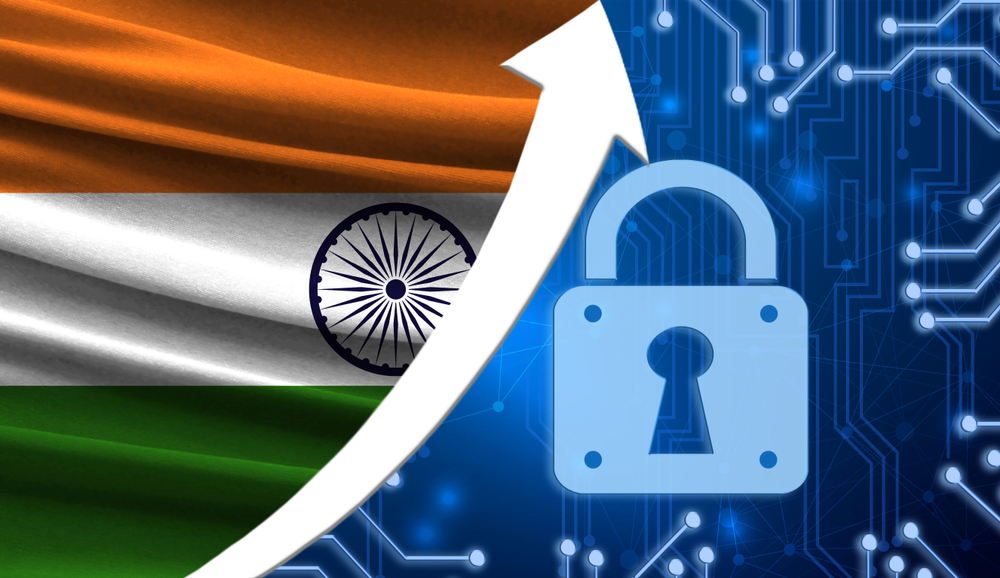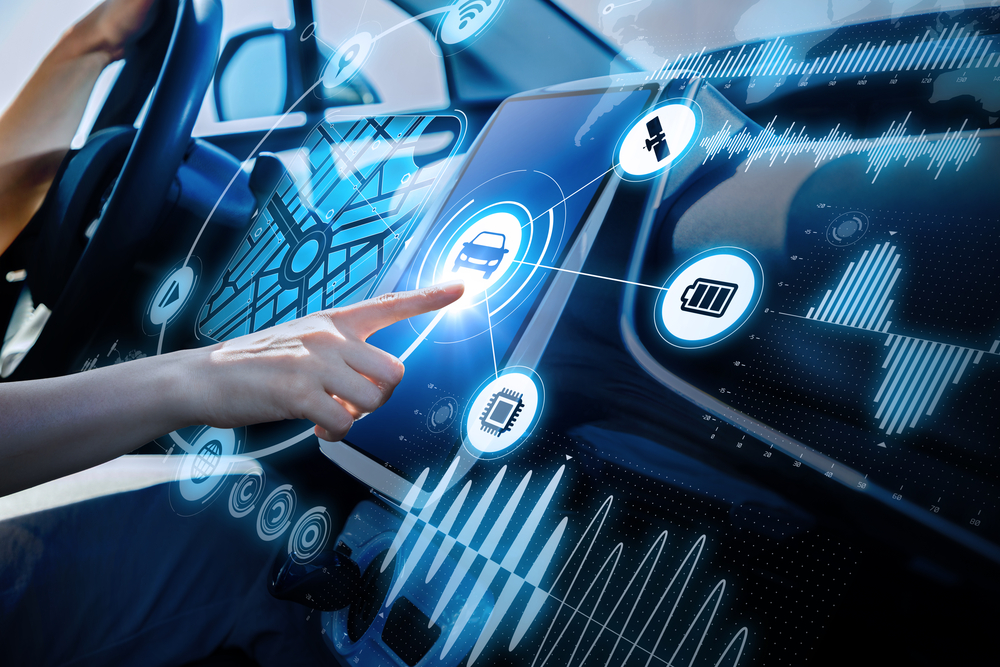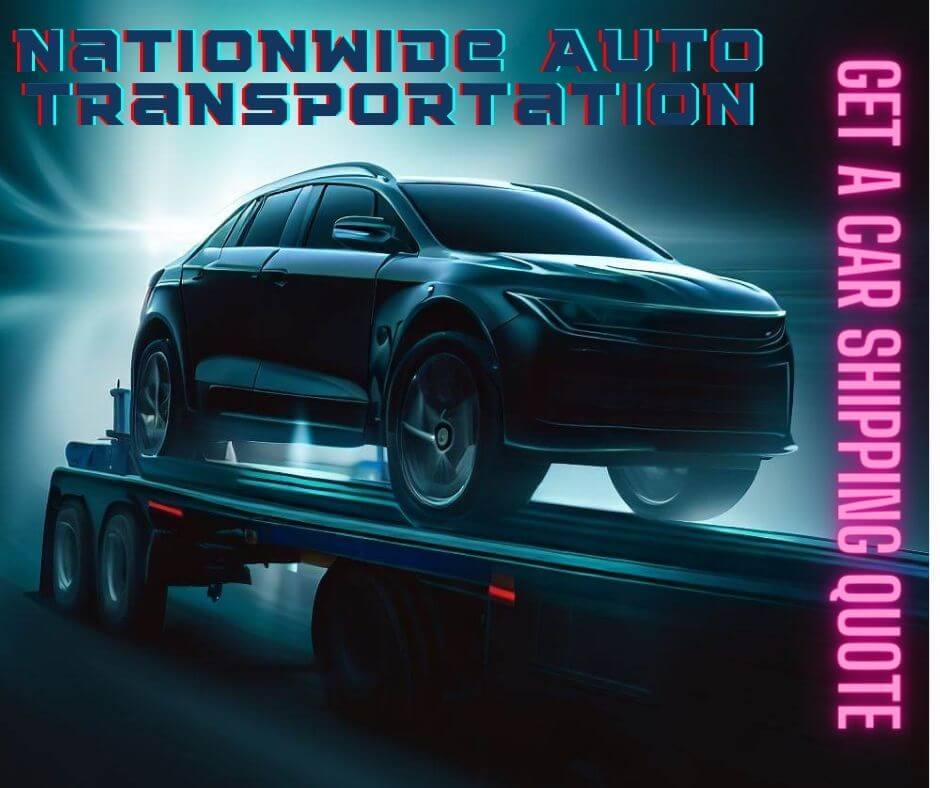
Reading Time: 15 minutes
Hey there! Ready to dive into the exciting world of blockchain in auto shipping industry? Buckle up because we’re about to take a fascinating ride!
Blockchain technology is making waves in various sectors. For this reason, it’s no exception in transportation and supply chain. With its decentralized and transparent nature, blockchain has the potential to revolutionize how we handle auto shipping. The result is a more efficient, secure, and reliable service.
In this article, we’ll explore the projected growth of the global automotive blockchain market. Then we focus on:
- The impact it has on transportation and supply chain.
- Emerging trends in innovations and compliance.
- Disruptive potential.
- Positive impact on the automotive industry.
- Government initiatives.
- Role in supply chain management and last-mile delivery.
- The future prospects it holds.
Let’s fasten our seatbelts! Get ready for an exciting journey into the world of blockchain in auto shipping! We start by looking at the projected growth of the global automotive blockchain market.
Transport Industry Trends | What Changes We Will See [2023]

Discover more about efficient car shipping and its impact on your business in our detailed guide: Explore Efficient Car Shipping Strategies. Dive into the world of vehicle logistics and learn how to optimize your operations!
“To understand the basics of blockchain technology, visit Investopedia’s comprehensive guide to get a detailed overview.”
Projected Growth of the Global Automotive Blockchain Market
The global automotive blockchain market is set to experience tremendous growth in the coming years. According to research, the market is projected to grow from $0.37 billion in 2021 to $2.84 billion by 2028. It is noted at a compound annual growth rate (CAGR) of 33.8% during the forecast period[1].
Here are some more key insights related to the projected growth of the global automotive blockchain market.
- The automotive blockchain market is expected to reach $5.29 billion by 2030, growing at a CAGR of 31.19% during the forecast period[2].
- North America dominates the global market and is expected to continue its dominance in the coming years[3].
These statistics highlight the immense potential of blockchain technology in revolutionizing the automotive industry. What happens as businesses recognize the value and benefits of blockchain? Well, they are increasingly adopting this technology to enhance their operations and improve customer experiences.
To dive deeper into how self-driving cars are shaping the transport industry, you can visit this blog post. It provides extensive insights into the changes we can expect to see in the coming years.
In the following sections, we look into the impact of blockchain technology on transportation and supply chain management. Next, we look at emerging trends, and innovations, as well as its disruptive potential in the automotive industry. Stay tuned!
“The World Economic Forum discusses various government initiatives globally, including the adoption of blockchain technology in different sectors.”
Own a dealership? Efficient Inventory Management | The Link Between Vehicle Shipping and Car Dealerships is a must read.
Blockchain for Car Transport and Supply Chain
Blockchain technology is revolutionizing various industries. With this, its impact on transportation and supply chain is truly transformative. But how?
Blockchain is reshaping how goods are transported by providing a secure, transparent, and decentralized system. It is tracked, and verified throughout the supply chain. Let’s delve deeper into how blockchain is making its mark in the transportation and supply chain industry.
Ride-Sharing
One area where blockchain is making a significant impact is in ride-sharing services. Blockchain technology allows for the creation of decentralized ride-sharing platforms, eliminating the need for intermediaries like Uber or Lyft.
With blockchain, riders and drivers can directly connect and transact without the involvement of a third party. The result is lower fees, and increased trust in the system. Additionally, the use of smart contracts enables automatic payment processing. This sees to it that both parties receive their fair share.
Cost Reduction
Cost reduction is a major concern in the transportation and supply chain industry. What happens by implementing blockchain technology? First, organizations can effectively streamline operations, reduce paperwork, and eliminate the need for intermediaries.
Following on, the decentralized nature of blockchain eliminates the reliance on centralized systems. Obviously, reducing the risk of data breaches and manipulation. This leads to increased security and cost savings, as intermediaries often come with high fees.
Mitigating Risks of New Business Models | Decentralized Auto Shipping
Supply chain transparency is crucial for businesses to gain a competitive edge in today’s market. Blockchain technology provides a scalable and secure framework for recording and verifying transactions.
With blockchain, companies can track and trace products from their origin to the end consumer. Guaranteeing authenticity, quality, and compliance. This increased visibility helps mitigate risks associated with new business models. Think about, counterfeit products, unauthorized modifications, or inefficiencies within the supply chain.
In addition to these impacts, blockchain also brings several other benefits to the transportation and supply chain industry.
- Increased Efficiency.
- Streamlines processes.
- Eliminates duplication of efforts,
- and enables real-time tracking.
- leading to improved overall efficiency.
- Enhanced Security
- Blockchain’s decentralized and immutable nature provides robust security measures.
- Protecting sensitive information and reducing the risk of fraud or cyberattacks.
- Improved Collaboration.
- Multiple stakeholders can securely access and share data. Fostering collaboration and trust among partners within the supply chain.
- Sustainable Practices.
- Enables the recording of sustainability-related data, helping organizations track their carbon footprint.
- Ethical sourcing promotes sustainable practices throughout the supply chain.
- Enables the recording of sustainability-related data, helping organizations track their carbon footprint.
Blockchain is revolutionizing transportation and supply chain through increased transparency, cost reduction and improved efficiency. Adoption and innovation in this space are rising as more organizations recognize its potential.
“Blockchain technology is transforming the transportation and supply chain industry. It provides a secure, transparent, and decentralized system for tracking and verifying transactions. With all that said, blockchain is revolutionizing the way goods are transported and managed within the supply chain.”
“Looking for a quicker solution to your car shipping needs? Dive into our in-depth article on Expedited Car Shipping Services to discover the benefits, insights from real customers, and why it’s the preferred choice for many. Fast track your knowledge today!”
Decentralized Auto Shipping | Emerging Trends in Innovations and Compliance
The automotive industry is witnessing rapid advancements and innovations. This is thanks to the integration of blockchain technology. Blockchain has the potential to revolutionize various aspects of the industry, including innovations and compliance.
Now, let’s dig into the emerging trends in this exciting area.

Innovations in the Indian
Automobile Industry
India is known for its thriving automotive industry. This said, it is adopting blockchain technology to drive innovations and streamline operations.
Here are some key developments.
| Area of Innovation | Description |
|---|---|
| Vehicle Lifecycle Management | Enables the creation of a secure and decentralized platform for tracking the entire lifecycle of a vehicle. This includes manufacturing, sales, maintenance, and ownership transfer. By leveraging blockchain, the Indian automobile industry can ensure transparency, prevent fraud, and optimize operations. |
| Supply Chain Management | Provides real-time visibility and transparency across the supply chain. Reduces inefficiencies and improving overall operations. With blockchain, manufacturers can *track the movement of components. *verify their authenticity. *ensure compliance with quality standards. This technology can help streamline the supply chain in the Indian automotive industry and enhance trust among stakeholders. |
| Electric Vehicle (EV) Adoption | The Indian government has set ambitious targets for electric vehicle adoption. Blockchain can play a crucial role in supporting this transition by creating a decentralized charging infrastructure network. This network can: *facilitate transactions. *track energy consumption. *and provide incentives for EV owners. Blockchain-based solutions can also enable seamless integration between EVs, charging stations, and the power grid. |
Decentralized Auto Shipping | Compliance with European Standards
In Europe, blockchain is being utilized to improve compliance with automotive regulations and standards.
Euro 6 Emission Standards
Blockchain tech can help verify compliance with Euro 6 emission standards, creating a decentralized ledger for accurate reporting. Identifying non-compliant vehicles more efficiently will help contribute to cleaner air and a more sustainable auto ecosystem.
Vehicle Safety and Recalls
Blockchain provides an immutable and transparent record of a vehicle’s maintenance and repair history. This enables regulators to track safety-related incidents and issue timely product recalls. Making sure of the safety of consumers. Now, automakers can also proactively address safety concerns and maintain consumer trust.
Data Privacy and Security
With the General Data Protection Regulation (GDPR) in place, protecting consumer data has become paramount in the automotive industry. Blockchain offers a secure and decentralized framework for managing and sharing sensitive data. Automakers can use blockchain to ensure data privacy, obtain explicit consent from users, and comply with GDPR requirements.
Blockchain is transforming the automotive industry, driving innovation and regulatory compliance. European countries are using it for emissions, safety, and data privacy, creating new growth and sustainability prospects.
“Blockchain is reshaping the automotive industry by driving innovation and enhancing compliance. From streamlining vehicle lifecycle management to ensuring compliance with regulations, blockchain is revolutionizing the way the industry operates.”
Seasonal Trends in Auto Shipping | Do They Matter?
Decentralized Auto Shipping | Disruptive Potential

When it comes to emerging technologies, blockchain is one that has the potential to revolutionize numerous industries. This includes the automotive sector. Blockchain’s disruptive potential lies in its ability to provide transparency, security, and efficiency in various processes. Let’s take a closer look at how blockchain is set to shake up the automotive industry.
Blockchain for Car Transport In Smart Tech
Blockchain technology has the potential to pave the way for the widespread adoption of smart vehicles. By leveraging blockchain, vehicles can securely share data with each other and with infrastructure systems. Resulting in enhanced communication and coordination. This can lead to significant advancements in areas such as autonomous driving, traffic management, and predictive maintenance.
Risk Management
The automotive industry involves complex supply chains with multiple stakeholders. This makes it susceptible to various risks, such as counterfeit parts and fraudulent transactions. Blockchain can address these issues by ensuring the immutability and transparency of data.
By recording every transaction and change made to a vehicle’s history on the blockchain, it becomes virtually impossible to tamper with the records. This enhances trust and reduces the risk of fraud. As shown above, making the automotive ecosystem more secure and reliable.
Tracking and Transparency
The automotive industry relies heavily on the movement of goods and parts across various stages of the supply chain. Blockchain technology can provide a decentralized, transparent, and immutable ledger. It enables real-time tracking, and verification of the movement of goods. This can help streamline logistics, reduce inefficiencies, and minimize the risk of lost or counterfeit goods.
“Blockchain technology has the potential to disrupt the traditional way of doing business by providing a secure and decentralized platform for transacting and sharing information.”
By leveraging blockchain, the automotive industry can benefit from:
- Enhanced security and privacy.
- Improved supply chain management.
- Increased trust and transparency.
- Reduced fraud and counterfeit parts.
- Streamlined logistics and tracking.
Blockchain has already started to make waves in various industries. However, its impact on the automotive sector is only beginning to be realized. As more companies recognize the potential of this technology, we can expect to see even greater disruption and innovation in the years to come.
Make sure to check the Role of Auto Shipping in Corporate Relocations to stay updated on the latest developments and insights in the auto shipping industry.
Sources:
- The global automotive blockchain market is projected to grow from $0.37 billion in 2021 to $2.84 billion by 2028 at a CAGR of 33.8% in forecast period.
- The automotive blockchain market is projected to grow from USD 0.35 billion in 2020 to USD 5.29 billion by 2030, at a CAGR of 31.19% during the forecast.
- Automotive Blockchain Market Size is expected to grow at 31.5% CAGR during the forecast study period and North America dominates the global market.
Blockchain for Car Transport | Government Initiatives in Blockchain Tech
Blockchain technology has gained significant attention from governments worldwide. This is chiefly due to its potential for increasing transparency, security, and efficiency in various sectors. Governments have recognized the transformative power of blockchain and are actively exploring its applications in areas such as finance, healthcare, and supply chain management.
Given these points, here are some notable government initiatives in blockchain technology.
United States
The United States government has shown keen interest in blockchain technology. In 2018, the Blockchain Caucus was formed in the U.S. Congress. Its purpose, to educate policymakers and promote blockchain-friendly legislation.
Additionally, the Department of Defense has been exploring the use of blockchain for secure communication and supply chain management. Furthermore, the U.S. Postal Service is reportedly exploring the use of blockchain technology for managing digital identities.

Estonia

Estonia is often touted as a global leader in blockchain adoption. The government of Estonia has implemented a comprehensive blockchain-based system called e-Residency.
It enables foreigners to establish and manage businesses remotely. This initiative has streamlined business processes. Furthermore, it increased transparency in the country’s administrative procedures.
Dubai
The government of Dubai had set ambitious goals to become the world’s first blockchain-powered city by 2020. Dubai’s government has launched various blockchain initiatives. Included were the Dubai Blockchain Strategy.
It’s aim was to transform government services, facilitate transactions, and enhance the security of vital records. Additionally, Dubai is working towards incorporating blockchain technology into healthcare, transportation, and real estate sectors.
“Learn more about the ambitious blockchain strategy of Dubai by visiting the official government website.”

China

China sees blockchain as a crucial technology for its digital transformation. The Chinese government has taken significant steps to promote blockchain adoption. The first being, the establishment of the Blockchain-Based Service Network (BSN).
BSN aims to provide a standardized infrastructure for blockchain applications across various sectors. In a word, making it easier for businesses to leverage blockchain technology.
Switzerland
Known for its favorable regulatory environment, Switzerland has emerged as a global hub for blockchain innovation. The Swiss government has implemented a supportive legal framework to encourage blockchain startups.
Not only that, it has established the Crypto Valley in the canton of Zug. A city where numerous blockchain companies and research institutions are based. Switzerland is actively exploring blockchain applications in areas such as supply chain management and digital identity verification

Governments are implementing blockchain initiatives to improve service delivery, enhance transparency, and create a more secure and efficient environment.
“Governments worldwide are recognizing the potential of blockchain technology to revolutionize various sectors. Through their initiatives, they aim to leverage blockchain’s benefits and create a more efficient and secure future.”
Blockchain in Auto Shipping & Other Real-world Applications
Blockchain technology is already being used in various supply chains across industries. Some notable real-world applications include the following.

- Food traceability: Blockchain enables consumers to track the entire journey of their food products. Overall, promoting transparency and ensuring food safety.
- Pharmaceutical supply chain: Companies can verify the authenticity of drugs, tackle counterfeiting, and enhance the integrity of the supply chain.
- Automotive industry: Can be used to verify the authenticity of car parts, streamline the procurement process, and improve recall management.
It is a paradigm shift that promises to bring greater efficiency, trust, and accountability to the global supply chain ecosystem.
Before we find out more about blockchain in auto shipping, read, Shipping a Car Across the Country | A Hilarious Guide to learn and laugh!
The Role of Blockchain in Last-Mile Delivery
Last-mile delivery is a critical component of the logistics industry. It refers to the final leg of the supply chain. This is where products are transported from hubs or warehouses to their end destinations. For the most part, the customers’ homes or businesses.
This stage is often the most complex and challenging. In brief, due to factors such as traffic congestion, varying delivery locations, and customer demands for faster and more efficient services. This is where blockchain technology has the potential to revolutionize last-mile delivery and overcome these challenges.
What is Blockchain and How Does it Work?
Blockchain is a decentralized and transparent digital ledger that records and verifies transactions across multiple computers or nodes. Each transaction or data entry, is known as a block. It is linked to previous blocks through cryptographic algorithms. Significantly, guaranteeing the integrity and security of the information.
Here’s a simplified explanation of how blockchain works!
- A transaction is initiated and broadcasted to the network of computers.
- The computers validate the transaction using complex algorithms to ensure its accuracy.
- Once validated, the transaction is added as a new block to the existing chain.
- The information is permanently recorded and cannot be altered without consensus from the network.
Benefits of Blockchain in Last-Mile Delivery
Implementing blockchain technology in last-mile delivery brings several benefits that can enhance efficiency, transparency, and trust in the process.
Enhanced Security and Trust
Blockchain provides secure and tamper-proof systems to record and store delivery-related information. With cryptography and consensus mechanisms, malicious actors are unable to alter or manipulate data. This increased security and immutability brings trust to stakeholders like customers, providers, and retailers.

Improved Traceability and Transparency
Blockchain enables real-time tracking and tracing of goods throughout delivery. Each block in the chain represents a specific event or checkpoint, such as warehouse departure, vehicle loading, and destination arrival. This level of traceability and transparency allows stakeholders to monitor the status and location of shipments, reducing theft, loss, and delay.
Efficient Digital Identity Management
Last-mile delivery involves various parties such as drivers, customers, and delivery personnel. Blockchain can facilitate secure identity management for these individuals. This decentralized system of verification ensures only authorized personnel handle the shipments. This leads to trust building in the delivery process.
Smart Contracts for Streamlined Operations
Self-executing contracts with the terms of the agreement directly written into code. They can streamline and automate certain aspects of last-mile delivery operations. For example, smart contracts can automatically trigger payment transfers once a package is successfully delivered! In fact, eliminating the need for manual invoicing and reducing administrative costs.
Real-World Examples of Blockchain in Last-Mile Delivery
Blockchain in last-mile delivery is not just a concept; it is already being implemented in various real-world scenarios.
- Walmart and IBM Partnership
- Walmart and IBM collaborated to develop a blockchain-based system for tracking and tracing food products. This initiative allows Walmart to quickly identify the origin of contaminated products and remove them from the supply chain. In effect, enhancing food safety and improving last-mile delivery.
- SUN Mobility
- This Indian start-up leverages blockchain technology to create a shared and decentralized marketplace for electric vehicle batteries. This approach enables efficient swapping and charging of batteries. Thereby enhancing the last-mile delivery of goods using electric vehicles.
Decentralized Auto Shipping | The Potential
Blockchain offers immense potential to revolutionize last-mile delivery. This is through improving security, traceability and efficiency. Its decentralized and transparent nature can greatly improve customer experience and streamline operations. As more organizations recognize the benefits, adoption and innovation is expected to increase.
Future Prospects of Blockchain in the Automotive Industry
Blockchain technology has already made significant inroads in various industries, and the automotive industry is no exception. As we look to the future, there are several exciting prospects for blockchain in the automotive industry.
1. Autonomous Vehicles and Connected Car Systems
As the world moves towards a future of autonomous vehicles and connected car systems, the need for secure and transparent data exchange becomes paramount. Blockchain technology can play a valid role in overseeing the integrity and security of data in these systems.
By using blockchain, autonomous vehicles can securely communicate with each other. Simultaneously, with infrastructure in a decentralized manner, it enables safer and more efficient transportation.

2. Vehicle Identity and History Tracking
Blockchain has the potential to revolutionize the way we track and verify the identity and history of vehicles. Each vehicle can be assigned a unique digital identity. It is stored on the blockchain, that contains information about:
- Ownership.
- Maintenance records
- Accident history, and more.
- This would make it nearly impossible to tamper with or falsify this information. Resulting in a transparent and trustworthy record of a vehicle’s history.
3. Supply Chain Management and Counterfeit Prevention
With the increasing global automotive manufacturing and supply chains, assuring component authenticity and integrity is a challenge. Blockchain tech allows manufacturers to track the movement of parts from source to assembly line. This prevents counterfeit parts from entering the market and improves efficiency.
4. Peer-to-Peer Car Sharing
Peer-to-peer car sharing platforms have gained popularity in recent years. This is because it helps individuals to rent their vehicles to others when they are not in use.
But how can Blockchain enhance the security and transparency of these platforms? For starters, by providing a decentralized system for verifying identities. It is also great for tracking rental transactions, and managing insurance coverage. This can make peer-to-peer car sharing more secure and accessible to a wider audience.
5. Digital Payments and Smart Contracts
Blockchain technology can simplify and streamline the payment process in the automotive industry. Digital currencies and smart contracts enables transactions between buyers, sellers, and service providers. These can be executed automatically and securely without the need for intermediaries. This can reduce transaction costs and eliminate the risk of fraud! Obviously, benefiting both customers and businesses.
6. Environmental Sustainability and Carbon Credits
As environmental awareness grows, blockchain can aid in tracking & verifying carbon credits for electric vehicles & other green initiatives. This technology provides an open & immutable record of emissions. Allowing governments & organizations to incentivize eco-friendly practices & promote the use of electric vehicles. Read more about Best Electric Car Friendly States Explored | Your 2023 Guide.
7. Data Monetization and Customer Privacy
With the increasing amount of data generated by vehicles, blockchain can empower individuals to have control over their data. In fact, you can monetize it if you choose to do so. Blockchain-based platforms can provide a secure and transparent framework for individuals. Here they share their data with third parties while ensuring their privacy. Not only that, but they receive fair compensation for their data contributions.
Final Thoughts | Blockchain in Auto Shipping
In conclusion, blockchain technology has the potential to revolutionize the automotive industry. This is, especially in the areas of transportation and supply chain management. It offers benefits such as increased transparency, improved security, and faster transactions.
The global automotive blockchain market continues to experience significant growth. In light of this companies in the auto shipping industry must stay informed and adapt to these emerging trends.
Nationwide Auto Transportation and Decentralized Auto Shipping
By leveraging blockchain technology, companies like Nationwide Auto Transportation can enhance their services. Moreover, provide their customers with a more efficient and secure vehicle shipping experience. With its seamless door-to-door service and reliable reputation, Nationwide Auto Transportation is well-positioned to embrace the benefits of blockchain technology.
embrace innovative technologies
As the automotive industry continues to evolve, it is crucial for businesses to stay ahead of the curve and embrace innovative technologies. Blockchain has the potential to streamline processes, reduce costs, and improve customer satisfaction. With its many advantages, it is clear that blockchain is a game-changer in the auto shipping industry.
To learn more about the latest trends in the transportation industry and how these changes will impact the future of auto shipping, check out Nationwide Auto Transportation’s blog articles on Transport Industry Trends. Stay informed, stay ahead, and experience the seamless vehicle shipping services offered by Nationwide Auto Transportation.

Frequently Asked Questions About Blockchain in Auto Shipping
What is blockchain and how does it relate to auto shipping?
Blockchain is a decentralized digital ledger that records and verifies transactions. In auto shipping, blockchain can revolutionize the industry! This can happen by providing transparent and secure documentation of vehicle history, ownership, and condition during the shipping process.
How can blockchain enhance the efficiency of auto shipping?
Blockchain can improve auto shipping efficiency by reducing paperwork, streamlining processes and eliminating intermediaries. It provides real-time visibility, data accuracy and trust among stakeholders, enabling faster, more secure transactions.
What are the potential benefits of implementing blockchain in auto shipping?
Implementing blockchain in auto shipping leads to many benefits.
- Increased transparency.
- reduced fraud.
- improved traceability.
- enhanced security.
- faster settlements.
- cost savings.
- customer satisfaction.
Are there any challenges or limitations to using blockchain in auto shipping?
Blockchain offers advantages, but also challenges. Think of scalability, regulations, adoption, interoperability, and standardization. Overcoming these is key for wider adoption of blockchain in auto shipping.
Are there any existing blockchain solutions specifically designed for auto shipping?
Yes, there are already blockchain solutions designed for auto shipping. These solutions aim to streamline processes, provide secure and tamper-proof documentation, and facilitate efficient collaboration between stakeholders. Examples include ShipChain, VINchain, and CarVertical.



